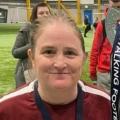
THE coronavirus pandemic has resulted in a surge in young people being referred to school counselling services in Fife.
In April last year, there were just three referrals to the schools’ counselling service provided by DAPL (Drugs, Alcohol and Psychotherapies Ltd), however, in June, there were 22, in September 93, November 92 and in December there were 64.
In January and February this year, there were 25 and 26 referrals respectively.
In a report to members of Fife Council's education and children's services sub committee on supporting Our Minds Matter, the young people's emotional wellbeing service in Fife, education manager Rona Weir explained: "There are strong messages coming from the data about children and young people feeling socially-disconnected, more so than usual.
"Girls are particularly expressing feelings of loneliness."
Ms Weir said a main part of reasons "tended to mention stress/anxiety with these terms used interchangeably."
Reasons, she said, could be connected to home issues, COVID or their learning.
She said Fife Child & Adolescent Mental Health Services (CAMHS) had continued to strive to provide "timely, specialist assessment and therapeutic, evidence-based interventions" to individuals, groups, families and carers during the pandemic but admitted waiting lists had soared.
"Children and young people with the most complex and severe mental health issues continue to be prioritised alongside prompt initial assessment for all those referred via GPs to ensure the right support is identified to meet children and young people’s mental health needs," she said.
"Despite the temporarily-reduced number of referrals, the numbers of young people accepted to CAMHS remains stable with a significantly higher number of referrals requiring urgent or priority interventions."
Ms Weir said "the majority of clinical resource" was being used to meet demand and said there were currently 174 young people who had waited more than 18 weeks to be seen.
"Referrals to CAMHS continue to exceed the existing resource and combined with the increasing complexity of presenting mental health issues, waiting times still exceed the Scottish Government's Referral to Treatment Target of 18 weeks," she added.
"Whilst the average waiting time is 11 weeks, the need to provide priority appointments has meant that those presenting with less urgent needs continue to be placed on a waiting list."
In January and February, nearly a fifth of referrals related to anxiety, 17 per cent were because of low mood while school stress (13.8 per cent), home stress (16.1 per cent) and low self-esteem (11.5 per cent) were also among reasons for referrals.
A survey carried out in lockdown found that 27 per cent of Primary 7 girls surveyed in Fife were "most concerned" about their appearance.
A total of 19 per cent of boys also said that they felt unhappy about what they looked like.
A Shine health and wellbeing survey was made available for use by all schools in Fife for P7, S2 and S4 year groups with themes including health, happiness, feelings, school, self-confidence and wellbeing.
When asked about the things they felt most happy about, the Primary 7 pupils' main answers were "things you have", "home", "time use" and "friends".
Their lowest scores were attached to "the future" and "appearance".
The picture for S2 and S4 year groups showed an increase in the number of respondents signalling low mood, with more girls than boys indicating that they experience low mood.
Responses also suggest that S2 and S4 young people are feeling more anxious about their learning than usual.



Comments: Our rules
We want our comments to be a lively and valuable part of our community - a place where readers can debate and engage with the most important local issues. The ability to comment on our stories is a privilege, not a right, however, and that privilege may be withdrawn if it is abused or misused.
Please report any comments that break our rules.
Read the rules here